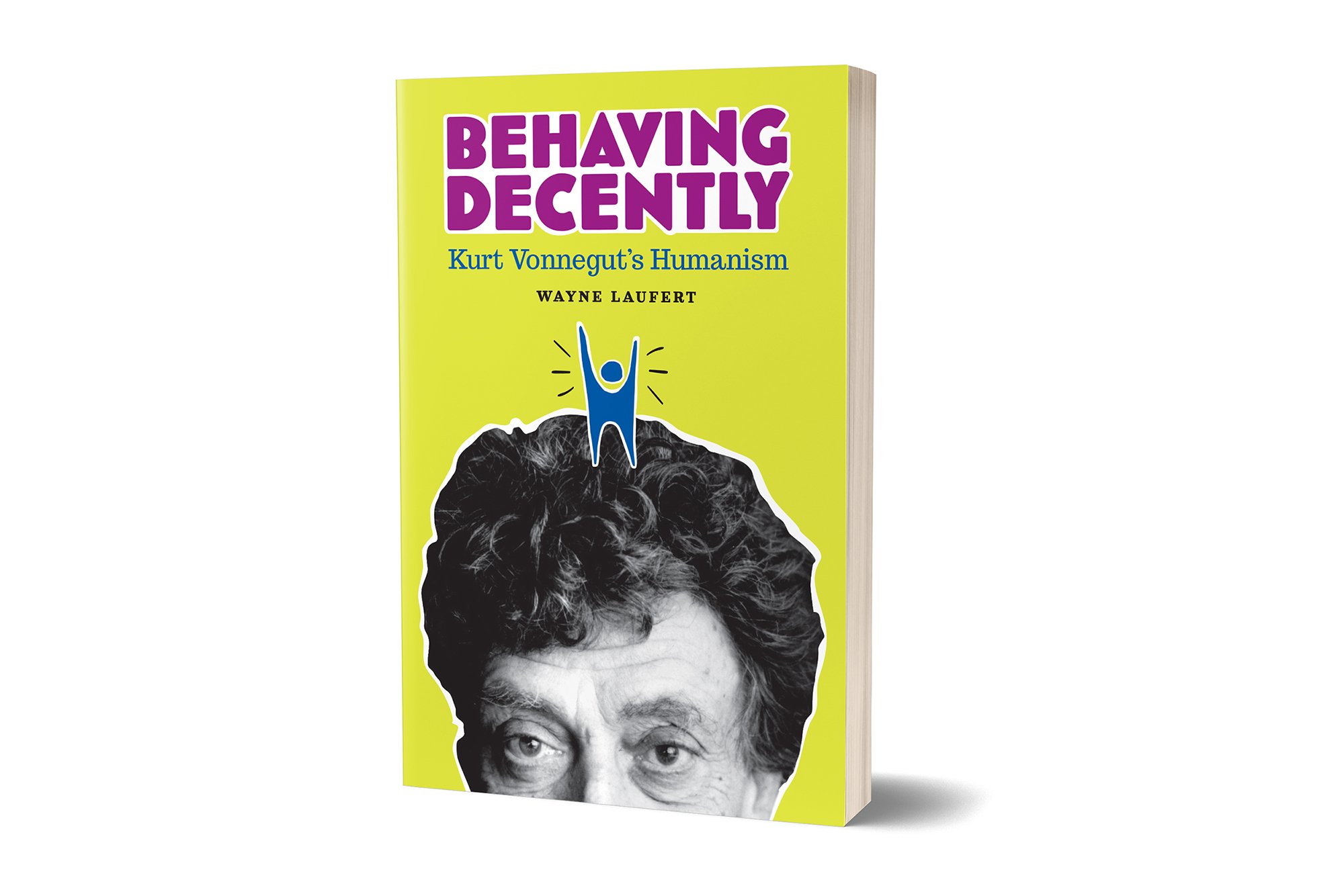
Behaving Decently: Kurt Vonnegut’s Humanism
by Wayne Laufert
Vonnegut and humanism go hand in hand. But defining an -ism is one thing. In BEHAVING DECENTLY, Wayne Laufert lays the groundwork of a humanist philosophy as defined through the themes and characters in Vonnegut’s work—from his first novel, Player Piano (1952), to several collections of fiction and nonfiction published after his death in 2007.
But defining a human being is a fool’s enterprise. What about separating Kurt Vonnegut the person from his writings? This book also weighs Vonnegut’s published words against his deeds and the semi-autobiographical characters of his fiction.
P r a i s e f o r B e h a v i n g D e c e n t l y :
"Behaving Decently is the most important book for humanists and freethinkers in over a decade. Laurfert expertly weaves together the full fabric of Vonnegut's humanism from his witty rational take on history and politics to his generous-hearted approach to people and life. For the first time, Vonnegut is revealed as the complete human being he was that prioritized humanity and revealed reality through his often darkly humorous fiction. Laufert's composition of Vonnegut's work presents key humanistic goalposts for today's aspiring humanists while simultaneously suggesting that we temper our rigidity so that we can be more open to coalescing with good people of all perspectives."
—Roy Speckhardt, author of Creating Change Through Humanism
“Behaving Decently: Kurt Vonnegut’s Humanism explores the profound core of an American icon. The spirit of Vonnegut’s humanism is centered squarely within the civic ideals (now seemingly lost) of an America groping to find its foundation. Wayne Laufert lifts the veils of various psychological and literary readings of Vonnegut to lay bare the essential values informing Kurt Vonnegut’s work.”
—Marc Leeds, author of The Vonnegut Encyclopedia
“Wayne Laufert honors Kurt Vonnegut in a way the deceased author would approve—with humor, informality, and respect. Without putting Vonnegut on a pedestal, Laufert helps us appreciate how the author was neither saint nor villain, but rather just another person trying to embrace their fellow human beings. While he could be cranky, and ‘sometimes got the facts wrong,’ he always had empathy for common people. Perhaps this is the type of humanism our fractured world needs today.”
—Hugh Taft-Morales, Ethical Leader of the Baltimore Ethical Society and the Philadelphia Ethical Society
Order at your local bookstore or online at:
Amazon (Paperback)
Amazon (Kindle)

